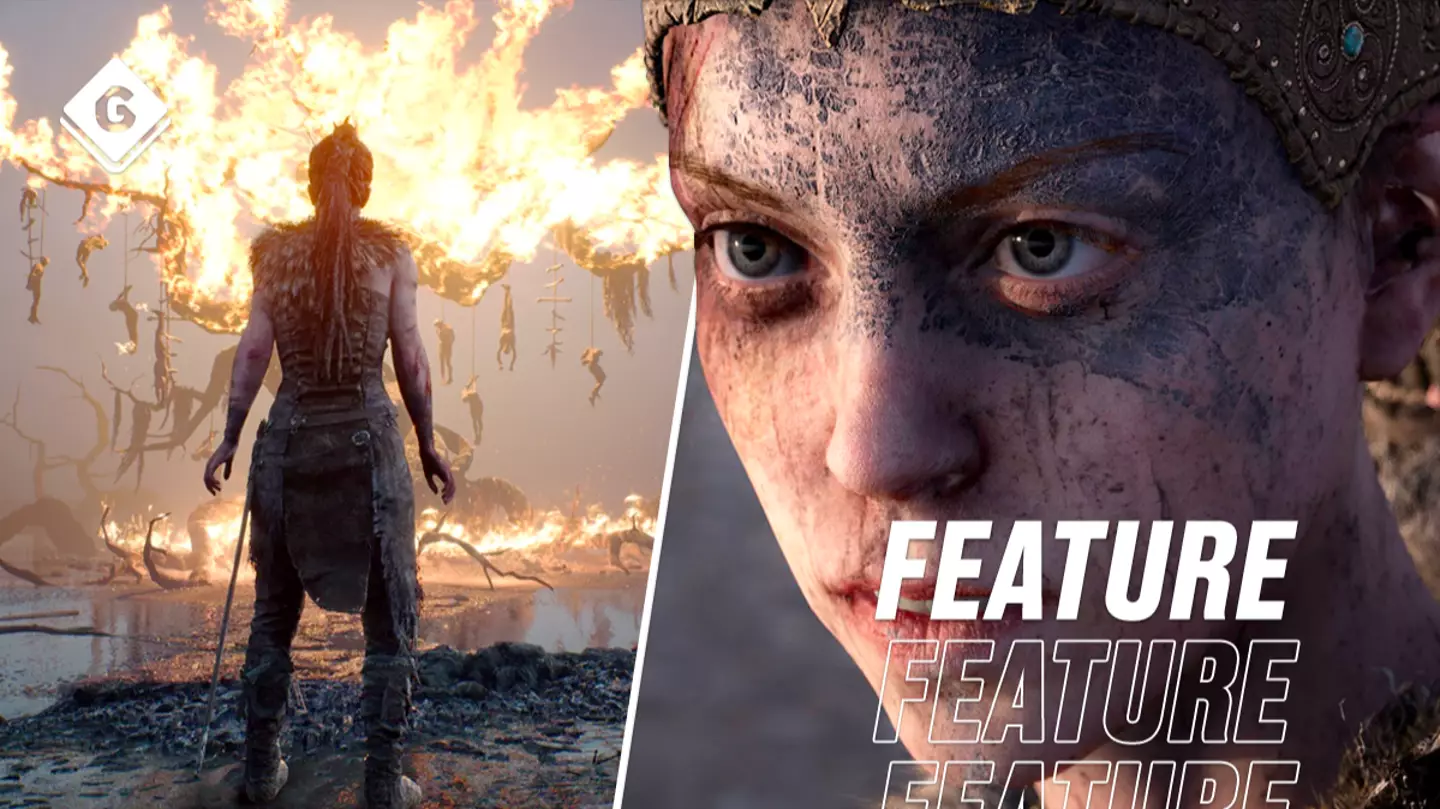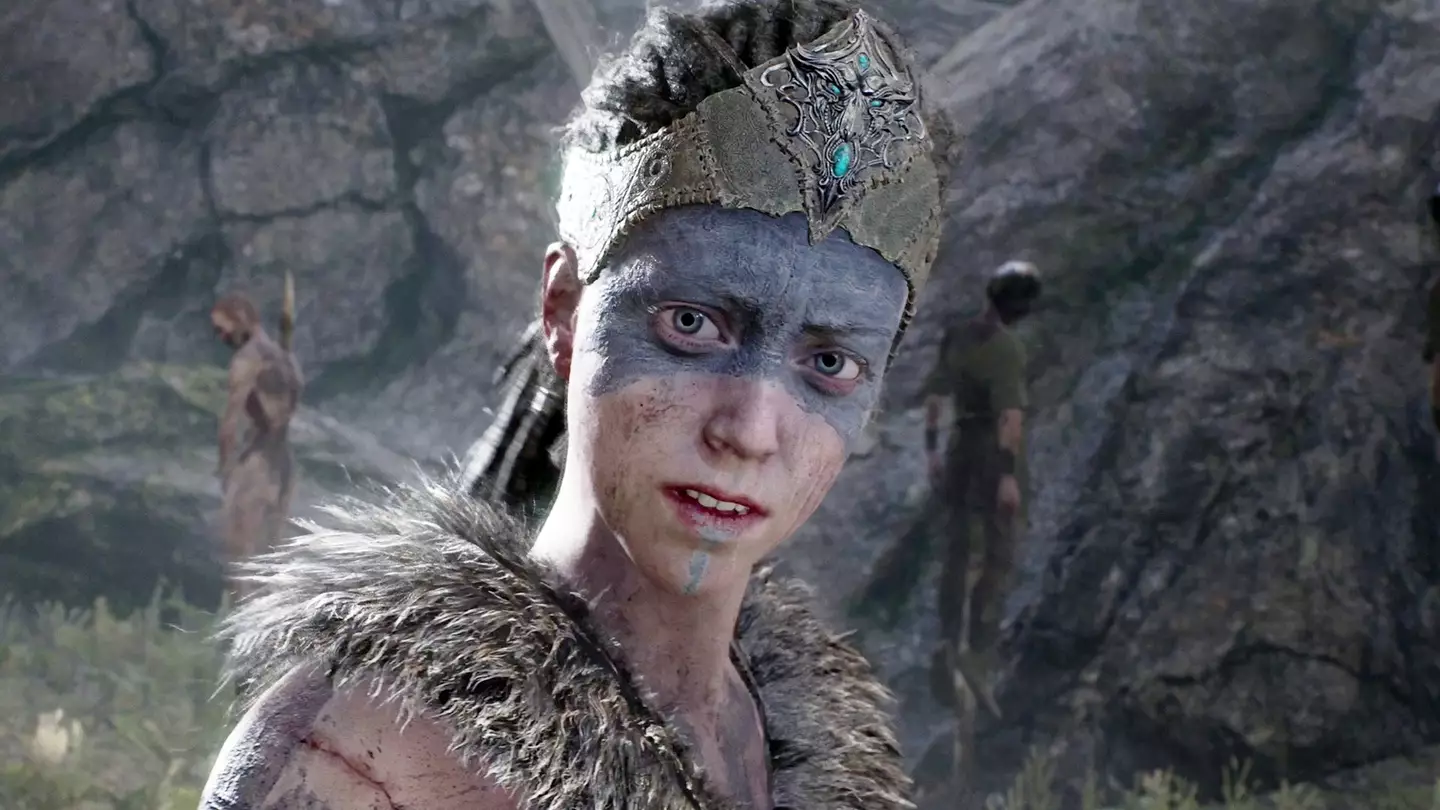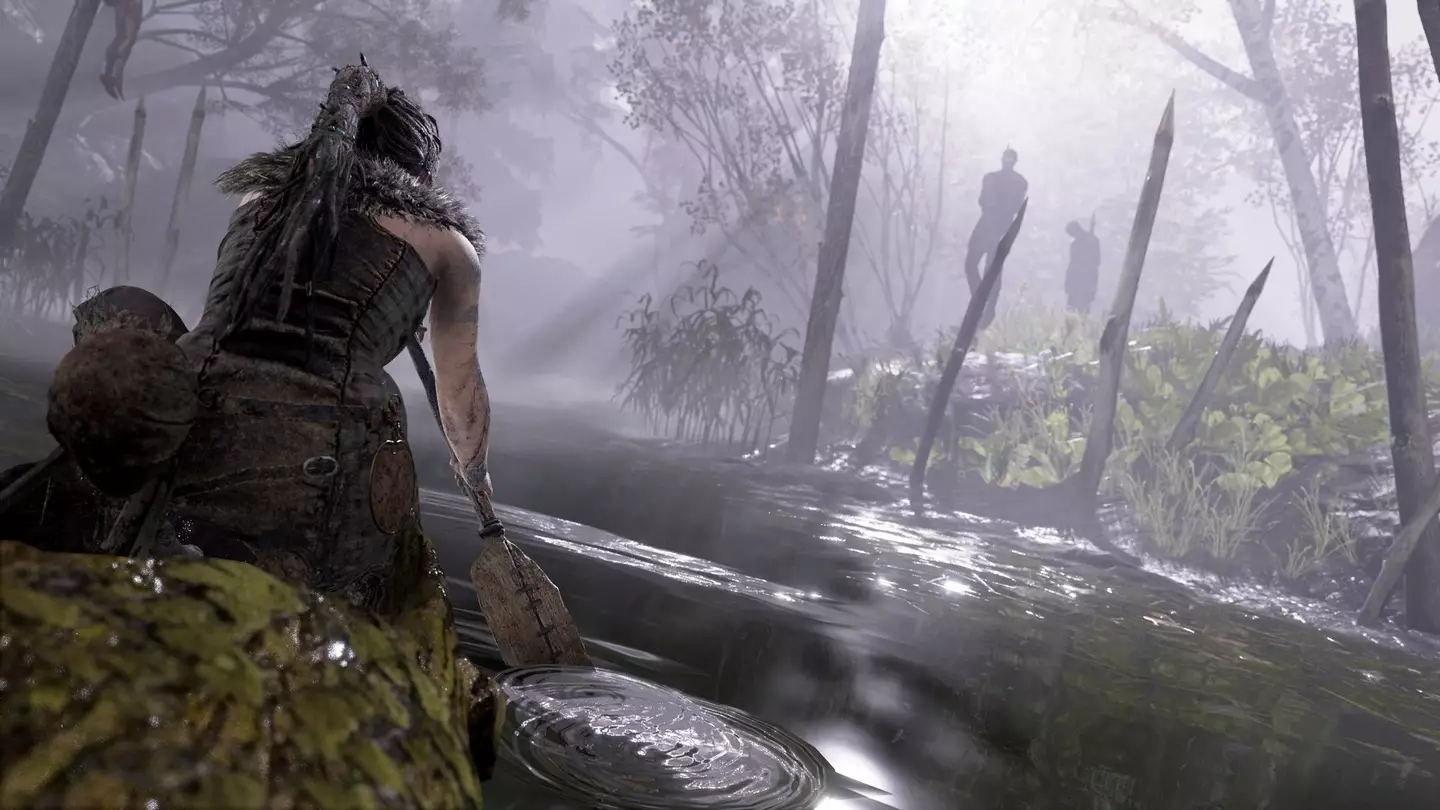
CW: Sexual abuse, abuse, suicide
The process of living with PTSD and psychosis isn't new to me, but talking about it openly is. Being born in the 80s, social culture was very different from what it is today which is why so many of my generation, including those born before and after, are conditioned to keep quiet.
I once thought that admitting my mental illnesses’ was a weakness or at least, that’s what I used to tell myself but I now realise that couldn't be further from the truth. Whether you keep things bottled up or are open to conversations that may be seen as taboo, is difficult either way. Taking that first step is never easy.
Advert
Check out the Hellblade: Senua's Sacrifice trailer below!
Perhaps now more than ever, video games have been exploring all aspects of mental health, with some developers handling the subject better than others. In 2017, there was a game that I drew an instant connection to. By the time I reached its conclusion, the psychosis that my therapist and psychiatric doctor told me about years ago, was nothing to be ashamed of. It may have taken me a long time to get to this point, but thankfully the game that helped me reach this point of realisation was Hellblade: Senua’s Sacrifice. But before we get into the game from Ninja Theory, let’s take it right back to a time when I had no understanding of mental illness.
It had taken many years to accept it, but I am an abuse survivor. In a previous article, I spoke about living with my autism and the difficulties that brought, not only as an adult today but as a child of the 80s. As with many children, growing up can be tough, especially for a child on the spectrum. Being undiagnosed at the time, I thought nothing of my behaviour. What may have been ordinary to me may have been unordinary to others.
Advert
Whether it was being bullied at school or situations inside the home, other than playing video games or building LEGO, one of my other coping mechanisms was to go on a wander. Being seven or eight years old at the time, going on these regular walks, left me exposed to exploitation from those who wanted to harm me. I won’t go into those details but being told by an abuser that I’d get into trouble if I told anyone and being a very literal-thinking autistic child who takes everything to heart (and I still do), I kept quiet.

I have no memory of who the person was. I have some fragments of that memory, like a jigsaw puzzle missing several pieces. Yet I always knew something was wrong in the back of my mind and I carried an illogical guilt and shame for years, even as a child. Then in my mid-teens, I felt like my life was under constant threat by a stalker who is thankfully now in a place where he cannot harm the outside world for a crime unrelated to me. At this point in my life, I had entered full self-destruction mode, relying on drugs and alcohol to suppress trauma.
Later in life, I was lucky to find my now wife, with whom we’ve been together for over 20 years and we have a wonderful son. However, despite trying for several years, I was unable to enjoy what should have been the best period of my life when our son was born. Vague in pieces memories began to resurface of what had happened to me as a young child. I couldn't quite make sense of it all, but subconsciously, it affected every aspect of my life. Around this time, I started to hear what can only be described as visceral voices and at times seeing shadows that startled me. These voices weren't mere thoughts that made me feel low in that moment, these were angry, clear voices that wanted to harm and could change my personality like a switch.
Advert

These voices were telling me to end it all, that I had no worth and that those already would get on better in life without me in it. This resulted in a systematic plan of suicide that I kept to myself for a long time. Eventually, I would seek help and not only did this amazing therapist identify my then undiagnosed autism in my early 30s, but it was the first time I ever heard of psychosis. That therapist, and later a clinical psychologist, explained to me what psychosis is and that it can be common for those living with PTSD, though no two experiences are the same.
Yet, I refused to acknowledge my psychosis, though I am more comfortable speaking about it today. Not only due to the help from family, a friend, and a therapist/psychologist but also because of Hellblade: Senua’s Sacrifice. Before you begin to play Hellblade: Senua’s Sacrifice, it recommends that you wear a headset to immerse yourself in the full experience – it was at this moment that it hit home.
While not exact, the voices that the protagonist of Hellblade, Senua, was constantly hearing weren't far removed from what I have been experiencing all these years. The game made me instantly uncomfortable and made me want to cry. Yet, unexpectedly, I no longer felt alone with my psychosis. Those who made this game had an understanding of the illness and with that logic, I knew that someone else understood.
Advert
I don't want to give much away about Hellblade: Senua’s Sacrifice because it is a game you need to experience. But what I will say is that Senua begins her journey as a victim of her PTSD and is relentlessly taunted by her psychosis. Yet, by the time her story concludes in this game, she accepts who she is. She not only learns to live with her illness but she proudly wears that mental battle scar on her sleeve and it helped to shape her into the warrior she became.
Hellblade helped me in a way that I never saw coming. It gave me a feeling of ease and familiarity knowing that I’m not alone. It got me talking to a member of the Ninja Theory team. A stranger by face at the time but thanks to this game, I felt comfortable telling him how and why Hellblade had impacted me in such a positive way. I want you to know that no matter your experiences and struggles, you’ve got this. Inspiration can come in many forms and for that moment in 2017, it was Ninja Theory’s Hellblade: Senua’s Sacrifice.
You can also read my interview with Ninja Theory on how mental health was handled in the sequel, Senua's Saga: Hellblade II.
Topics: Features, Mental Health, PC, PlayStation, Xbox, Nintendo Switch, Real Life